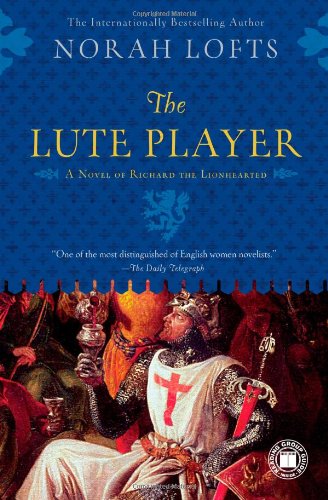The Lute Player
I first read this recently reissued novel over twenty years ago. A sweeping saga about Richard the Lionhearted and the Third Crusade, it helped make me a fan of historical fiction.
A traveling minstrel, Blondel, the title character, arrives at the court of Navarre. Anna, the king of Navarre’s illegitimate daughter, a hunchbacked dwarf, falls hopelessly in love with him. He develops an equally impossible love for her legitimate half-sister, the princess Berengaria. Berengaria has glimpsed a knight at a jousting tournament and informs her father that she will wed him and no other. He is Richard Plantagenet and unfortunately he is betrothed to a French princess. Even more unfortunately, he is no lover of women, and his one great, consuming passion is to recapture Jerusalem, which has fallen to Saladin.
The novel is narrated by Blondel, Anna, and Richard’s mother, Eleanor of Aquitaine. The characters work out their destinies against the backdrop of the Crusade. There are exciting battle scenes and court intrigue, war and politics as well as romance. Still, in less skilled hands, much of the story might boil down to soap opera. Norah Lofts breathes such extraordinary life into her characters that it is a profoundly moving work that speaks about the many types of human longing. Lofts’s people are all flawed to some degree, and yet most of them engage our sympathy. Richard is monomaniacal and at times cruel, but a true hero. The wise and worldly Eleanor of Aquitaine paints a marvelous self-portrait. Blondel and Anna are wonderfully, achingly real and make the reader truly care. The prose style is not remarkable—contemporary terms occasionally jarred me—but reading The Lute Player for the second time all these years later, I would still call it a masterpiece of historical fiction.










